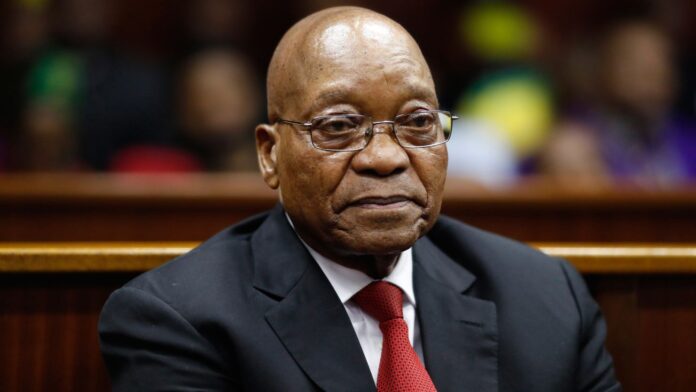Former South African President Jacob Zuma has been expelled from the African National Congress (ANC) after backing the rival party, uMkhonto we Sizwe (MK), in the May parliamentary elections. This move comes after the ANC, historically dominant since the end of apartheid, lost its majority for the first time and was forced into a coalition government.
In January, Zuma was suspended from the ANC after publicly announcing his support for MK in the general election. Despite his suspension, he actively campaigned for MK, which performed better than expected, securing approximately 15 percent of the vote. This significant performance contributed to the ANC’s reduction in voter support from 57.50 percent in 2019 to 40.18 percent, leading to the ANC losing its parliamentary majority.
ANC Secretary General Fikile Mbalula announced Zuma’s expulsion, citing his actions as a direct attack on the party’s integrity. Mbalula emphasized that Zuma’s conduct was “irreconcilable with the spirit of organisational discipline and letter of the ANC Constitution.” Despite his expulsion, Zuma has 21 days to appeal the decision.
Zuma’s political trajectory has been turbulent. His nine-year presidency, from 2009 to 2018, was marred by numerous corruption scandals and economic stagnation. His forced resignation from the ANC leadership in 2018 did little to quell his opposition to the party’s current leadership, particularly against his successor, President Cyril Ramaphosa.
MK, now the official opposition, criticized the ANC’s decision and the process of expelling Zuma, calling it a series of “grave injustices.” They stated that Zuma would consult with his legal team to determine their next steps. MK’s rapid rise and Zuma’s prominent role in the party reflect his enduring influence and the deep divisions within South African politics.
The expulsion marks a significant moment in South African politics, highlighting the fractures within the ANC and the emergence of new political dynamics. Zuma’s actions and the subsequent response underscore the shifting landscape as the ANC grapples with maintaining its relevance and unity in a changing political environment. This development also illustrates the broader challenges facing South African democracy, including issues of leadership, governance, and party loyalty.
As the ANC navigates this internal crisis, the broader implications for South Africa’s political future remain uncertain. Zuma’s potential legal challenge and MK’s growing influence suggest that the coming months will be critical in determining the stability and direction of South African politics.



